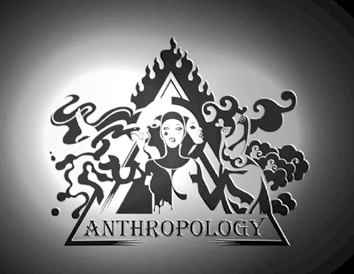




*eurocentric
adj. 以欧洲为中心的
*juvenile
adj. 青少年的(adolescent; young)n. 未成年人,少年
【记】juven(年青)+ile→青少年的
【例】The clerk directed Jane and her mother to the juvenile clothing section of the store.
**interracial
adj. 种族间的(between or involving different races)
【例】interracial conflict
*filial
adj. 子女的
【记】fil(儿子)+ial→儿子的→子女的
*semihuman
adj. 半人类的
【例】The kangaroo is one of the “evolved” animals, genetic upgrades that are permitted to live semihuman lives and do society’s grunt work.
*humanlike
adj. 人类的;似人类的(hominoid)
【例】Scientists digging in a Kenyan desert have found what they believe to be the oldest humanlike footprints.
**humanoid
adj. 像人的(man-like)
【例】On its last trip, it delivered a new storage compartment packed with supplies and a humanoid robot.
**longevity
n. 长寿
【记】long(长)+ev(时间)+ity→活得时间长→长寿
antecedent
n. 前事(a preceding event, condition or cause);前辈adj. 在前的,先行的(preceding in time and order)
*anthropology
n. 人类学
*anthropocentric
adj. 以人类为中心的,以人类观点解释宇宙万物的
【例】But the persistence of this attitude felt stale and charged with anthropocentric assumptions and a lack of scientific objectivity.

*matriarchal
adj. 母系氏族的
【例】The mythical origin of the Gelede is said to reflect the transformation from a matriarchal society into a patriarchal society.
*matriarchy
n. 母系社会;母权制
【记】matr(母)+i+archy(统治)→母权制
【派】matriarchal(adj. 母系氏族的)
*patriarchy
n. 父系社会
【例】It’s about having an ongoing conversation about how we rethink gender and sexuality and patriarchy within the black community.
**posterity
n. 后代(offspring; descendant)
【记】post(后)+erity→后代
**ancestral
adj. 祖先的;祖传的(patrimonial)
【例】Using DNA markers and mathematical time-clock calculations, researchers have identified our ancestral Adam and Eve.
*progenitor
n. (人或动植物的)祖先;(思想、学术或政治运动的)创始人,先驱
【例】Marx was the progenitor of Communism.
**predecessor
n. (职务或职位的)前任者(a person who held an office or position before sb. else)
【例】The decision was made by my predecessor.
*celibacy
n. 独身(bachelorhood)
【例】Celibacy, which gets less attention, is an even deeper problem.
*genealogy
n. 家谱;家系;家系学
【记】gene(基因)+alogy(=ology学科)→关于基因的研究→家系学
*ethicist
n. 伦理学家
*groom
n. 马夫;新郎(bridegroom)
【记】g(哥哥)+room(房间)→哥哥进新娘房间→新郎
*demography
n. 人口统计学
【记】demo(人)+graphy(写)→写出人口有多少→人口统计学
**census
n. 人口普查
【记】cens(评估)+us→评估人口→人口统计
**aboriginal
n. 土著 adj. 土著的;原来的(native)
【记】ab+original(原来的)→原来的
**descent
n. 血统(ancestry)
*hybrid
n. 杂种;混血儿
*ethnicity
n. 种族划分
*grownup
n. 成年人(adult)
【例】He was a grownup and knew that it would have insulted her to say that he had noticed nothing.
*mustache
n. 胡子(moustache)
【例】The mustache remains popular abroad, especially in the Middle East and in Southeast Asia.